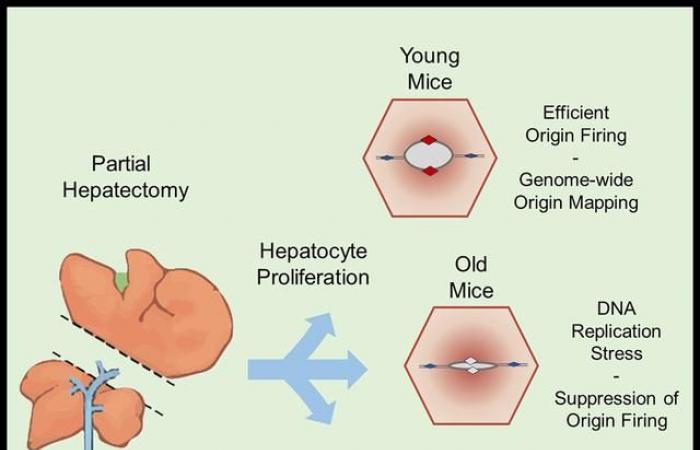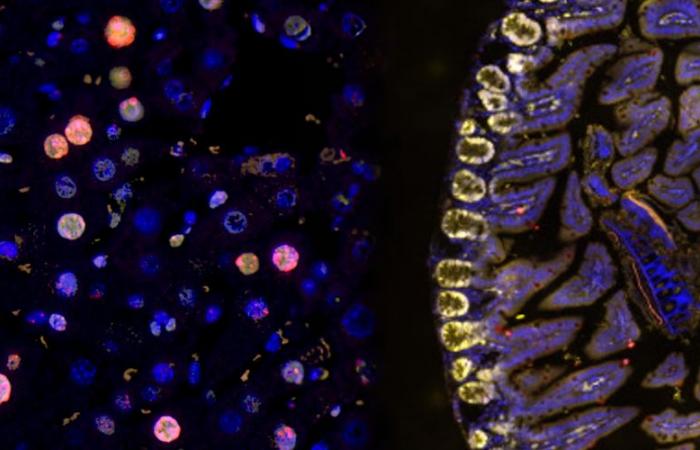Some organs, such as the liver or kidneys, age faster than others, like the intestine. A team of scientists from the Universities of Geneva (UNIGE) and Bern (UNIBE) wanted to know the reason. They have highlighted an ageing mechanism that could provide the beginnings of an answer.
Aging is marked by the increase in senescent cells, in other words, cells incapable of dividing and having lost their functions, UNIGE and UNIBE recalled in a press release issued on Tuesday.
Although the course of this process is debated, it is widely accepted, the two institutions note, that damage to genetic material (DNA), which accumulates over time, is the cause of ageing. The link between the two phenomena, however, is not yet elucidated.
Cells have DNA repair systems to prevent the accumulation of damage. For the coding parts of DNA, errors are detected during gene transcription. Errors in the non-coding parts of DNA are detected during cell renewal.
Big difference between organs
It turns out that the frequency of cell renewal varies depending on the tissues or organs.
We are talking about a few times a year for internal organs – liver, kidneys – and once or twice a week for tissues or organs in permanent contact with the outside world, such as the skin or intestines.
“The potential link between faster aging of the liver and the lower frequency of DNA replication in its cells” was analyzed using young and older mice. The scientists partially removed the livers of the animals and were then able to observe, during the regeneration of the organ after removal, “that replication starts were much more efficient in young mice than in old mice.”
According to the team, the explanation comes from the fact that the DNA of the liver cells of the aged mice, which was not subjected to regular error checking, accumulated, over time, a significant amount of damage, to the point of triggering an alarm system that prevents DNA replication.
Cryptic lesions
This blockage in cell replication causes their functions to deteriorate. “In cells that have remained dormant for long periods, too much cryptic DNA damage has accumulated.” In rapidly proliferating tissues, much less damage accumulates.
“Our model suggests that by repairing cryptic DNA lesions before replication is triggered, some aspects of aging could perhaps be avoided,” said Professor Thanos Halazonetis, from the Department of Molecular and Cellular Biology at UNIGE, quoted in the press release.
“If there are drugs already in use that can be converted to activate proteins, or if we find a way to repair cryptic lesions, we could prevent certain effects of aging,” the first author of the study, Giacomo Rossetti, assistant professor working with Professor Halazonetis, remarked to La Matinale.
This study from the universities of Geneva and Bern is the subject of an article in the specialist journal “Cell”.
Radio topic: Foued Boukari
Web adaptation: Raphaël Dubois/sjaq







